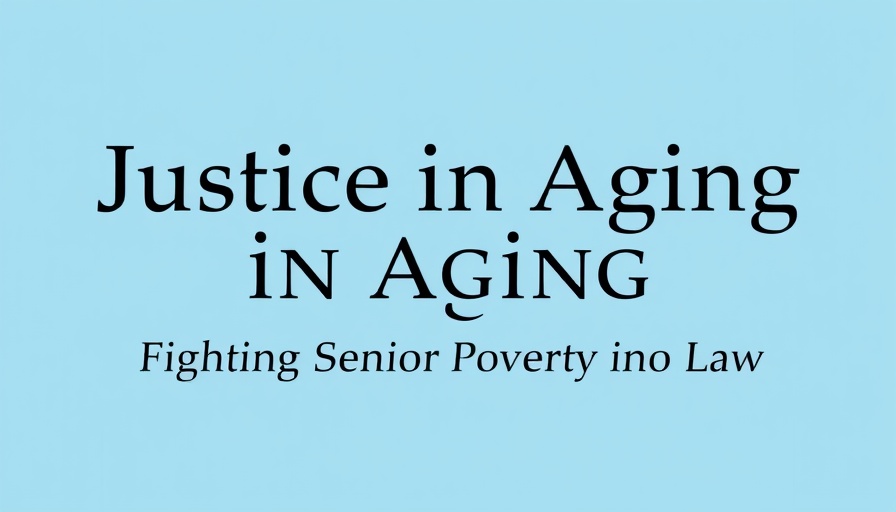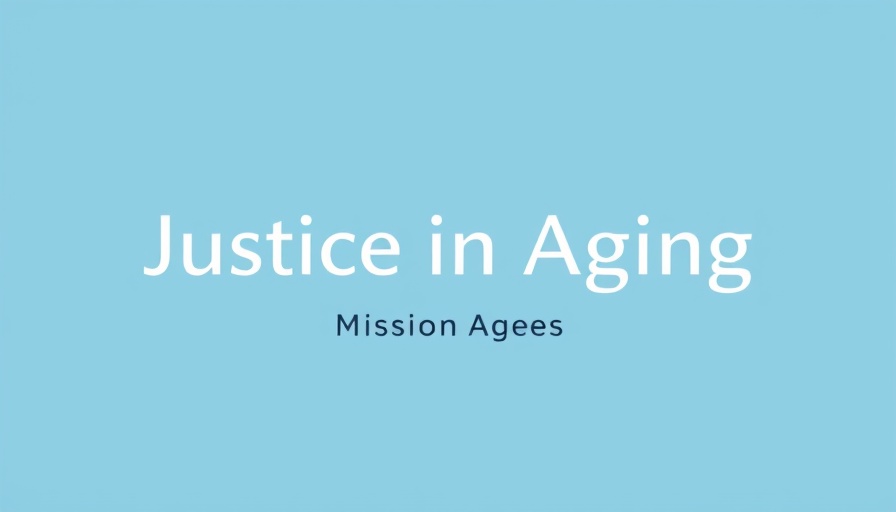
The Impact of Proposed Cuts on Seniors' Medicaid Access
The House Republican budget resolution is generating significant concern among advocates for older adults as it proposes nearly $900 billion in cuts to Medicaid. For millions of seniors who depend on Medicaid for essential healthcare services, this could mean losing access to the very lifeline that keeps them healthy. Medicaid not only provides basic medical care but also covers long-term and home-based care, which is critical for those needing assistance with daily activities like bathing and eating. Without proper funding, many states will likely face financial pressures that could force them to cut essential services and even deny coverage entirely.
Understanding the Stakes: Medicaid's Role for Older Adults
Medicaid is a crucial program for older adults, providing coverage that goes beyond what Medicare offers. Approximately 7 million older Americans rely on Medicaid annually, particularly as they age out of the ability to work and support themselves financially. Medicaid assists these individuals with various services that are often deemed optional, such as Home and Community-Based Services (HCBS). These services are not only essential for maintaining a standard of living but also enable seniors to remain independent in their own homes rather than moving to nursing facilities.
Rising Costs and the Need for a Sustainable Solution
The proposal to cap Medicaid funding shifts the financial burden from the federal government to the states, creating an unsustainable model for funding healthcare as the older population continues to grow. With an aging demographic, states will need more support to cover the increasing costs associated with long-term care and health services. The potential cuts threaten to erode these essential services, leading to a situation where many seniors may find themselves without necessary medical support.
Potential Outcomes: What Happens Next?
If Congress moves forward with these cuts, the immediate effects will be felt among the most vulnerable populations. There's a risk that states might implement waiting lists for services, impose stricter eligibility requirements, or reduce benefits altogether. Additionally, the cuts could lead to lower reimbursement rates for healthcare providers, causing them to stop accepting Medicaid, which would further limit access to care for those who depend on these services.
The Call to Action: Protect Older Adults' Healthcare
It is imperative for community members and advocates to voice their concerns regarding these potential cuts. Seniors and their families can urge lawmakers to prioritize the health needs of older Americans over tax cuts for wealthy individuals and corporations. Calls and messages to representatives can make a significant difference in shaping policy and ensuring that Medicaid remains a viable option for older adults.
To take action, call 866-426-2631 to demand that your lawmakers protect Medicaid funding critical for senior health and well-being. You can make your voice heard, ensuring that our aging population receives the support they fundamentally require.
 Add Row
Add Row  Add
Add 




 Add Row
Add Row  Add
Add 

Write A Comment